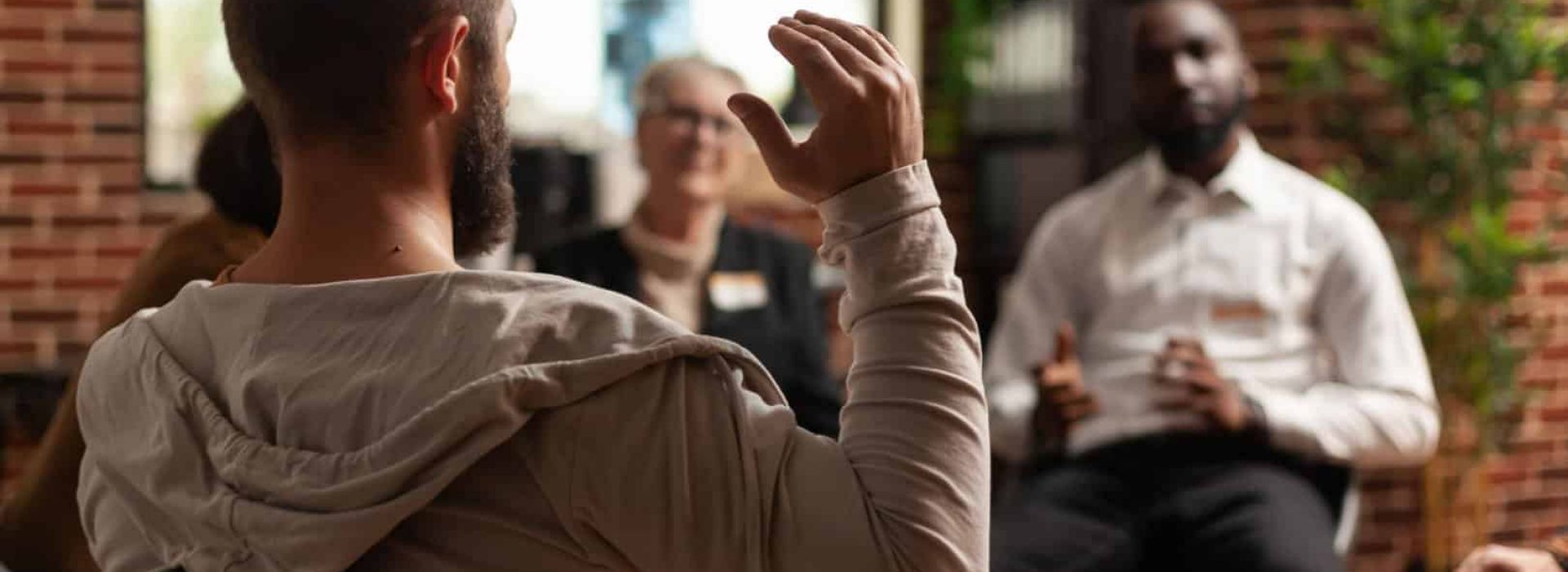What are the Alternatives to AA (Alcoholics Anonymous)?

Alcoholics Anonymous (AA), Narcotics Anonymous (NA), and other 12-step programs can be excellent ways to maintain sobriety. Additionally, participants in these programs connect with others in recovery from substance abuse who help them spiritually and emotionally heal from life after addiction. Learn more about our alternatives to AA today!
12-Step Program
The 12-step program is a “community fellowship” or a non-clinical community-based program designed to unite people while offering inspiration and hope to people in recovery, their families, or those curious about recovery.
Most 12-step community-based fellowships are led by peers and offered free of charge. While not an actual form of therapy, these fellowships complement therapeutic treatments such as clinical addiction treatment and provide support long after rehab. While these programs prove highly effective for some people overcoming addiction, the 12-step model does not resonate with everyone. For example, those who aren’t religious or spiritual may take issue with that aspect of the program.
Addiction and mental health professionals often encourage clients to join a fellowship that clicks with them in their recovery journey. Not only do such programs support sobriety, but they help build confidence and willpower to stay sober in social situations.
For those in recovery who aren’t comfortable with a traditional 12-step program, here are a few alternatives to consider:
SMART Recovery
SMART Recovery, short for self-management and recovery training, is an increasingly popular addiction recovery program. SMART Recovery is not a religious or spiritually-based program. Therefore, it’s a good fit for those uncomfortable with the spiritual components of the 12-step model.
SMART Recovery focuses on empowerment and positive change through a science-based program. For example, there’s a strong emphasis on learning positive coping strategies to replace addiction as an unhealthy coping strategy.
The program also emphasizes goal setting and deep diving into thoughts, beliefs, and behaviors.
Recovery Dharma
Recovery Dharma is a Buddhist-based addiction recovery program. Participants learn guiding principles aligned with Buddhist teachings to help them live free of drug and alcohol addiction.
Recovery Dharma takes a very individualized approach to addiction recovery. Specifically, the program teaches that each person has the wisdom within themselves to find their path to sobriety.
Recovery Dharma relies heavily on the support of the Buddhist community – Sangha. In Buddhism, this means the men, women, and children who follow the teachings of the Buddha community. Sangha is a key to successful recovery.
Mindfulness in Recovery
Mindfulness in Recovery is an 8-week program designed by the Buddhist monk, counselor, and educator John Bruna. While different from ongoing, no-cost community fellowships, Mindfulness in Recovery still provides structured support by teaching mindfulness skills.
Mindfulness in Recovery offers resources and courses that teach practical and universal skills to live a life of intention. The program focuses on the following aspects of mindfulness that help lead to personal transformation:
- Attention
- Values
- Wisdom
- Equanimity
- Loving-kindness
- Compassion
- Action
- Open heart
Mindfullness in Recovery is usually a compatible supplement with other recovery fellowships and clinical programs.
LifeRing
LifeRing is a secular and abstinence-based addiction recovery program that uses peer-to-peer support to maintain sobriety.
LifeRing abides by three principles: sobriety, secularity, and self-help.
The LifeRing program approaches recovery by comparing relationships between one’s “sober self” and “addicted self.” Hence, the goal is to help empower and uplift the sober self while weakening the addicted self.
LifeRing teaches living in the present moment and strongly emphasizes community support through virtual and in-person meetings.
Women for Sobriety
Another one of our alternatives to AA is Women for Sobriety. Women for Sobriety (WFS) is a group that offers a self-help program, also known as “New Life.” The New Life Program brings women together to share experiences in recovery while supporting individual growth and self-discovery.
Women for Sobriety considers women-specific experiences, such as those affected by self-worth, shame, and guilt. WFS follows the principle “Release the past, plan for tomorrow, live for today.”
Join a Fellowship That’s Right For You Today!
Taking that step to join a recovery fellowship, no matter what your choice, is commendable. Flatirons Recovery in Boulder is a multi-pathway treatment center with alternatives to AA as well as additional treatment resources. We are here to support you and help you find a long-term recovery program that suits your needs and beliefs in your recovery journey. While we introduce the 12-step models, we encourage you to participate in whatever community fellowship feels best for YOU. We allow you to create and pursue an individualized plan for community involvement for long-term recovery.
Our programs are clinically focused and built on evidence-based treatment modalities such as mindfulness, EMDR, DBT, CBT, ACT, MI, biofeedback, and nutritional counseling. Additionally, we offer experiential therapies such as art therapy, equine therapy, yoga, and nature/adventure therapy. Flatirons Recovery in Boulder currently hosts the only in-person Recovery Dharma meeting in Boulder County. We want to walk alongside you as you heal from addiction with clarity and purpose.
Learn more about all we offer in addiction treatment in Boulder, CO.

